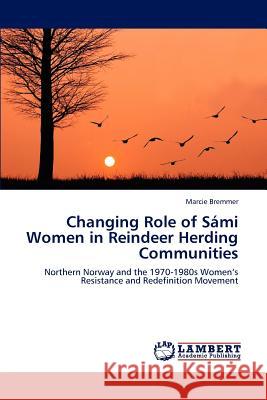Changing Role of Sámi Women in Reindeer Herding Communities » książka
Changing Role of Sámi Women in Reindeer Herding Communities
ISBN-13: 9783659224492 / Angielski / Miękka / 2012 / 120 str.
The traditional connectedness between men, women and nature for the Sami people has undergone many changes in Samiland in the past few decades, resulting in Sami women having to find ways to redefine alter and adapt their traditional and customary roles to changing environmental, political and social climates over time while still remaining Sami. Historically, nations-states at different times tried to claim authority over the Sami in the circumpolar north. After nation state borders were drawn separating Russia, Norway, Sweden and Finland, Norway introduced a harsh assimilation policy lasting over a century. Cultural Darwinist views, national assimilationist legislation and social strategies chipped away at Sami society and ethnic identity. Over time Sami women found their accustomed social, economic, and political autonomy eroded. Post World War II began a policy of "rationalization." The result was an increase of social and national pressures that called for the Sami people to conform to the majority society. In the later part of 1960, a Sami renaissance arose. Through the organization of knowledge, Sami women opened up new areas of social and political understanding."
The traditional connectedness between men, women and nature for the Sámi people has undergone many changes in Samiland in the past few decades, resulting in Sámi women having to find ways to redefine alter and adapt their traditional and customary roles to changing environmental, political and social climates over time while still remaining Sámi. Historically, nations-states at different times tried to claim authority over the Sámi in the circumpolar north. After nation state borders were drawn separating Russia, Norway, Sweden and Finland, Norway introduced a harsh assimilation policy lasting over a century. Cultural Darwinist views, national assimilationist legislation and social strategies chipped away at Sámi society and ethnic identity. Over time Sámi women found their accustomed social, economic, and political autonomy eroded. Post World War II began a policy of "rationalization". The result was an increase of social and national pressures that called for the Sámi people to conform to the majority society. In the later part of 1960, a Sámi renaissance arose. Through the organization of knowledge, Sámi women opened up new areas of social and political understanding.











